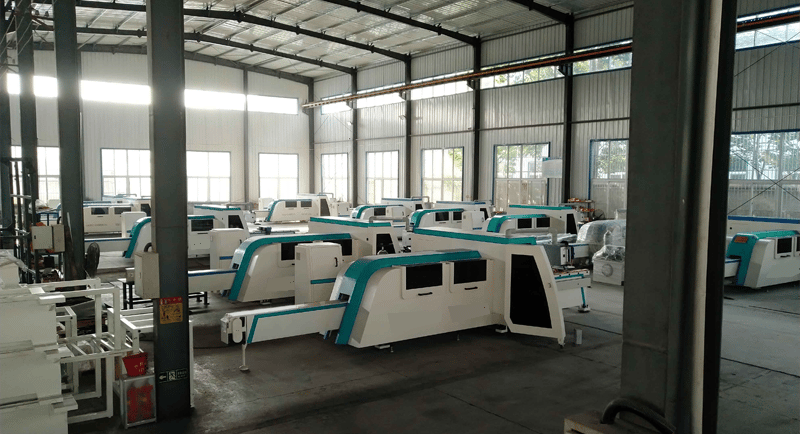5 Steps to Choosing the Right Busbar Processing Machine: A Guide to Avoiding Pitfalls for Individual Contractors in Southeast Asia / Latin America
6/26/20255 min read


Understanding Busbar Processing Machines
Busbar processing machines play a crucial role in the electrical industry, significantly improving the efficiency and accuracy of busbar fabrication. These machines are specifically designed to manufacture and assemble busbars, which are conductive materials used to distribute electrical power within electrical systems. The primary function of a busbar processing machine is to perform various operations, such as cutting, bending, drilling, and milling, thereby enabling contractors to customize busbars according to specific project requirements.
Individual contractors benefit greatly from the utilization of busbar processing machines as they streamline production processes, reduce manual labor, and enhance overall output quality. The machines are equipped with advanced technology that ensures precision and reliability, minimizing the risk of errors that could lead to costly rework or delays in projects. With the ability to process different types of materials, including copper and aluminum, these machines are indispensable tools in the electrical industry.
There are several types of busbar processing machines available on the market, each offering distinct features tailored to various production needs. Some machines are designed for high-volume production, featuring automation capabilities to maximize efficiency. Others may be more compact and suitable for smaller workshops, emphasizing versatility and ease of use over speed. Common features of busbar processing machines include digital displays for monitoring processes, customizable programming options for different busbar specifications, and integrated safety features to protect operators during operation.
Despite their advantages, it is essential to recognize the limitations of busbar processing machines. The initial investment can be significant, and the choice of machine will largely depend on the specific requirements of individual contractors. Understanding these machines' purpose and functionality can aid contractors in making informed decisions that align with their operational needs and capabilities.
Identify Your Specific Needs and Requirements
Before investing in a busbar processing machine, it is crucial for contractors to meticulously assess their unique project requirements. The first step in this assessment is to evaluate the production volume. Different projects will have varying output needs; therefore, understanding the anticipated volume will help in selecting a machine that can handle the workload efficiently. This consideration is particularly important in the bustling markets of Southeast Asia and Latin America, where the demand for electrical components is often fluctuating.
Following the evaluation of production volume, contractors must consider the material specifications. The type of materials being used—aluminum, copper, or other alloys—can significantly influence the choice of the processing machine. Each material has specific processing characteristics that must align with the capabilities of the machine to ensure optimal performance and output quality. Therefore, it is essential to verify that the chosen equipment is compatible with the desired materials, especially when adhering to specific regional standards and regulations in Southeast Asia and Latin America.
Another critical aspect to consider is project timelines. Understanding the timeframe for which the busbar processing machinery will be required allows for better planning and avoids last-minute rush purchases. Timeliness in production can also enhance a contractor's reputation and reliability in the competitive market. Alongside these assessments, setting a realistic budget cannot be overlooked. Budget constraints should guide the decision-making process, ensuring that selected machines not only meet project demands but also align with financial capabilities.
Lastly, it is vital to ensure that the chosen machine aligns with the contractor’s overall business goals. Whether aiming for high efficiency, precision, or expansion into new markets, selecting a busbar processing machine that complements these strategic objectives will lay a solid foundation for future successes.
Research and Compare Different Models
Choosing the appropriate busbar processing machine requires a systematic approach to research and comparison. Contractors should begin by identifying the specific models available in the market that meet their operational needs. It is essential to evaluate the technical specifications of each machine, as these details can significantly influence performance and efficiency. Key specifications to consider include processing speed, capacity, and compatibility with different busbar sizes and materials. Recognizing the nuances of each specification can aid contractors in making informed decisions that align with their project requirements.
Brand reputation plays a crucial role in selecting a busbar processing machine. Established manufacturers often provide not only high-quality equipment but also better after-sales support. Investigating the brand’s history, market presence, and user feedback can yield valuable insights. Customer reviews, available on various platforms and forums, can highlight the strengths and weaknesses of specific models, helping contractors to gauge user satisfaction levels. Pay careful attention to recurring themes in these reviews, such as reliability and ease of use, as they can provide a clearer picture of what to expect.
Warranty options are another critical aspect that should not be overlooked. A comprehensive warranty not only protects financial investments but also indicates the manufacturer’s confidence in the quality and durability of their product. Contractors should compare warranty lengths and coverage details across different models, as this can be a decisive factor in the selection process.
To find reliable information, contractors are encouraged to attend industry trade shows where they can view the machines in action and interact with manufacturers. Online forums also serve as a valuable resource; engaging with peers can provide insider knowledge and experiences related to specific models. By carefully researching and comparing various busbar processing machines, contractors can narrow down their choices and prioritize the features that will deliver the best value for their projects.
Making the Purchase: Best Practices and Post-Purchase Considerations
When finalizing the purchase of a busbar processing machine, it is imperative to consider several best practices that can significantly influence the machine's performance and longevity. To begin, negotiation of the price should be grounded in research and awareness of market averages. Contracts should clearly stipulate the payment terms to avoid any misunderstanding that could jeopardize the acquisition process.
Delivery and installation processes are equally critical. It is advisable to engage the supplier in discussions regarding the logistics involved in transporting the busbar processing machine to your facility. Confirm that the delivery timeline aligns with your operational needs, and specify the requirements for installation, as improper setup can lead to operational inefficiencies.
Once the machine is in place, post-purchase considerations become paramount. After-sales support is an essential element that ensures you can quickly address any potential issues. Prioritize companies known for reliable customer service, as this will be invaluable should complications arise with the busbar processing machine. Furthermore, investing in operator training is vital. Understanding the intricacies of the machine empowers your workforce to maximize the machine's capabilities, ensuring optimal performance that contributes to overall productivity.
Maintenance is another critical factor that cannot be overlooked. Establish a routine maintenance schedule to prevent breakdowns and prolong the life of the equipment. This may include regular inspections, timely replacement of worn components, and updating software if applicable. It is also beneficial to identify a trustworthy service provider skilled in servicing busbar processing machines, as their expertise will aid greatly in averting future operational pitfalls.
Incorporating these elements into your purchase strategy will not only enhance the initial acquisition experience but also set the foundation for a successful operational period with your busbar processing machine.
Innovate
Leading manufacturer of busbar processing equipment solutions.
Contact
Support
+131 2713 4627
© 2025. All rights reserved.
